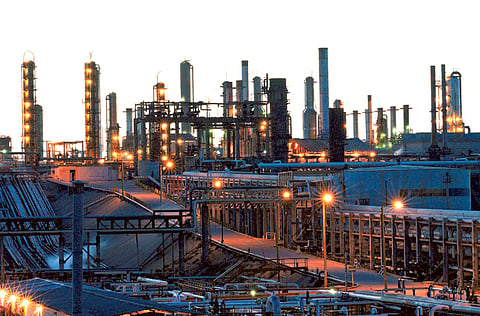Drug cartels a threat to Mexico’s new oil investors
Adnoc, Mubadala discuss investing in Mexico’s oil industry

Dubai: International oil companies prepping to invest in Mexico’s oil sector must be wary of an increasing threat to production from drug cartels siphoning oil to sell on the black market, analysts say.
Mexico, the world’s 10th largest crude oil producer, has looked abroad, including to the UAE, for investment after a set of laws aimed at opening its state-controlled energy sector were signed last month.
According to Mexico’s embassy in the UAE, Mexican officials have discussed a potential investment deal with Abu Dhabi state-owned companies Abu Dhabi National Oil Company (ADNOC) and Mubadala Petroleum. ADNOC has declined to comment on whether it is planning to enter Mexico’s oil sector, while Mubadala Petroleum could not be reached by Gulf News.
Estimates put losses from pipeline siphoning as high as $1 billion in 2013 but it is unclear whether this figure refers to the value siphoned or the profits of the organised crime groups.
Nick Panes, Managing Director, and Dwight Dyer, Senior Analyst at Control Risks Mexico City, said by email, that yearly losses for state-owned Pemex added up to $380 million in 2012. Though they said the amount is “likely to have considerably increased in the last 20 months”
“Illegal taps on Pemex pipelines have roughly doubled every two years since 2008,” Panes and Dyer said, with the number of taps this year on track to top 3000. There were 2612 taps in 2013.
Pemex is Mexico’s national oil company.
Carlos Petersen, United States-based Associate for Latin America at Eurasia Group, believes the 2013 figure is more conservative, with 5.6 million barrels of stolen hydrocarbons accounting for $73 million in losses.
A number of different groups are active in hydrocarbon theft, including corrupt Pemex workers, but the drug cartels are increasing their involvement, analysts say. Many of Mexico’s drug cartels are known for their brutality, including torture and beheadings.
“Insecurity is one of the most relevant factors in the energy-rich regions in Mexico, and it could slow down investment until the international companies can understand how to operate under these circumstances,” Petersen said.
In 2013, federal authorities recovered 2.12 million litres of illegal tapped fuel and made over 350 pipeline siphoning-related arrests, Panes and Dyer said.
An illegal siphoning conviction in Mexico carries a maximum sentence of 10 years and a $43,000 fine, Panes and Dyer said, however, a group of Senators are considering raising the sentence to 35 years by classifying siphoning as an organised crime.
But David Shields, a Mexico City-based energy analyst believes the government is not taking the situation seriously enough.
“You need a more active role by the police and army,” he said by phone.
Although analysts agree that security will represent a significant challenge for investment, they also point out that oil companies are already risk-acceptant by operating in many dangerous parts of the world.
And not all companies investing in Mexico are likely to be confronted with organised crime; with the risk so far containing itself in the north east of the country where the drug cartels are stronger.
“A lot of the offshore product is exported directly, avoiding pipelines that are the main target for siphoning … also those interested in secondary and tertiary recovery of fields the risks will be limited as well, given that the mature fields that require this type of investments are in the southeast of the country where the cartels have a lower presence,” Petersen said.
Investment in Mexico’s energy sector could increase to $55 billion a year following the reforms, Pemex has said, substantially higher than the current $27 billion.
Shields said he expects international oil companies to enter Mexico’s oil industry under the new reforms by the end of 2015.
“This is imminent,” he said.
Despite the significant siphoning losses, which Petersen said does not substantially impact Pemex’s finances, there is also a human and environmental issue.
Fifty 50 Pemex workers were kidnapped between 2001 and 2010 by cartels who wanted to learn how to tap the pipelines.
The siphoning has also led to explosions and fuel spills.
“In the last two months, approximately 37 spills have happened because of the illegal tapping,” Petersen said
In August 2014, an illegal tap led to 600,000 barrels leaking into the San Juan River in the northeastern state of Nuevo León, Panes and Dyer said. The leak affected hundreds of hectares of orange groves and endangering the El Cuchillo dam, which supplies drinking water to Mexico’s third largest city, Monterrey.
Sign up for the Daily Briefing
Get the latest news and updates straight to your inbox



